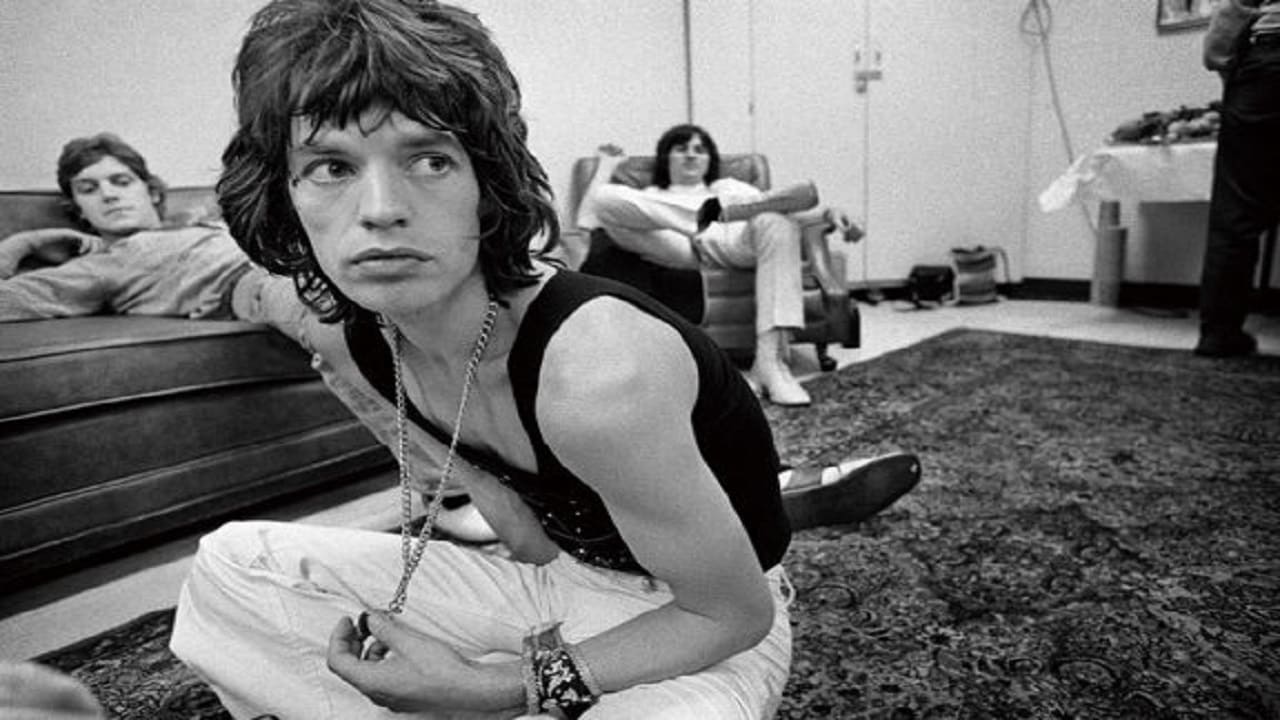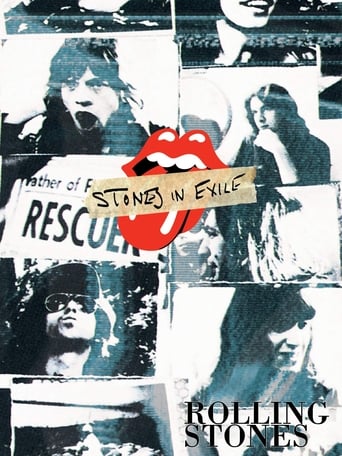Matcollis
This Movie Can Only Be Described With One Word.
Inclubabu
Plot so thin, it passes unnoticed.
ChanFamous
I wanted to like it more than I actually did... But much of the humor totally escaped me and I walked out only mildly impressed.
Orla Zuniga
It is interesting even when nothing much happens, which is for most of its 3-hour running time. Read full review
MisterWhiplash
Stones in Exile, which is decidedly much more about Richards but also about the group of the Stones at large, is perhaps just a little too short. It runs at a very brisk 60 minutes, which might be fine if one is looking for just the basic scoop ala-TV-documentary time. And maybe that is what it was meant for and is okay at. But this is a grand, epic story that got just the right amount of coverage in the books that have been released on that fateful summer of 1971 where the Stones left to France after England kicked their asses with over-taxes. You think it's tough here in the States, try getting an 83% tax rate! Maybe it's because it's a book versus a movie, or maybe there isn't enough that the Stones, all of whom including retired members like Bill Wyman and ex-lovers like Anita Pallenberg, agreed to let out due to being interviewed. Hell, even Richards's oldest son Marlon, who got a good deal of mention in Richards' memoir, gives some scoop on what little he could remember of the period. Or maybe it's more of a specific stylistic choice that is a little irksome in the doc: there is precious little actual interview footage shown of the Stones- we do see Jagger and Charlie Watts wandering around the old grounds of the basement recording studio at Nellcote- as it's mostly just voice-over and narration over still images and some limited rehearsal footage.There are a few talking heads- Martin Scorsese, Jack White, Benicio Del-Toro (?!)- but they're book-ended at the start and finish. I guess the one complaint is that it's not enough of a good thing, like a quarter of a filet mignon instead of the whole frigging slab of meat. And yet what is thrown to us is just fine, and if you have absolutely no knowledge of how the album was made (that is a novice Stones fan or maybe a curious visitor to their catalog) it is a good primer. We get to see some of the process, the long laboring to make just one song that could take days, and the peculiar and sometimes frustrating set-up at the Nellcote mansion of setting up musicians in a kitchen or a closet or bathroom just to get a particular sound. And, of course, other hassles like the distance-gap for Charlie Watts (a 6-7 hour drive round trip from his place to Richards' mansion!) and Mick Jagger's hyped marriage.Oh, and Richards' heroin addiction, which is given some mention but not to the extent that one could see in some of the books, certainly by Richards' own admission (after the summer he actually had to go to a special rehab in Switzerland just to get one of his many future cold turkeys). But it is a fun process to watch in the documentary, filled naturally and thankfully with every song from the album (save maybe for "Let it Loose" if I'm not mistaken). It's a tale of exiles making a record that is filled with great sounds and experimentation, and it gets better on every listen as its little idiosyncrasies and mix of hard-rock and blues and western and even gospel ("Just Wanna See His Face") make it so eclectic as to be one-of-a-kind. As for the documentary... not so much.
Niklas Pivic
This documentary has a lot of beautiful photography in it. A French film-maker, Dominique Tarlé, has produced a massive quantity of great photographs of the band during the period they evaded England for tax reasons (paying 93% in tax for all they made!) and went to the southern coast of France and made "Exile on Main St.", which I think is their best album. What ensued? Debauchery: drugs, the mafia, alcohol. Yes, but also a great album which had a lot of technical aspects to it that were hard to sort out due to everything being recorded in the basement of Keith's house where all the musicians were placed in different rooms due to leakage - and the album rocks, to say the least. This documentary plays on the good times the band had with each-other and their families, not on how things went pear-shaped towards the end and how they left. A remarkably fine documentary, especially image-wise.
RDOwens
Great band. Great album. Mediocre documentary.This is a patchwork of stills, video, and voice overs looking at the iconic album Exile on Main Street.The beginning was excellent staging the setting of how the Stones were forced out of England due to tax issues. Taking up residence in the South of France would lead them to cut this great album.But that is when the documentary began to drift. The story was cut with lots of recreations. Truly. Grainy black and white video with actors who are supposed to resemble the Stones are frequently cut in.What I would like to have seen (heard) is more music. Seriously.Perhaps gathering the band together, not scattered as they were (save Mick and Charlie) would have permitted more dialogue and insight into the creative process.
meslon
This documentary of the so-called 'making' of the great Stones' Album Exile on Main Street is a tedious and totally unconvincing and disappointing bit of science fictionalized fluff Having lived the early 70's in much the same way as the band and the hanger's on I failed to find a logical moment in the almost 50 minutes of this wingefest Much whining about conditions??? It was 1971 and life was wonderful if you had the money and the drugs and the women and the music The film is ludicrous and the statements are out of context A poor piece of work about a great band is only partially saved by the music Save 50 minutes of your life and listen to the album whilst watching the documentary-without the sound.........

